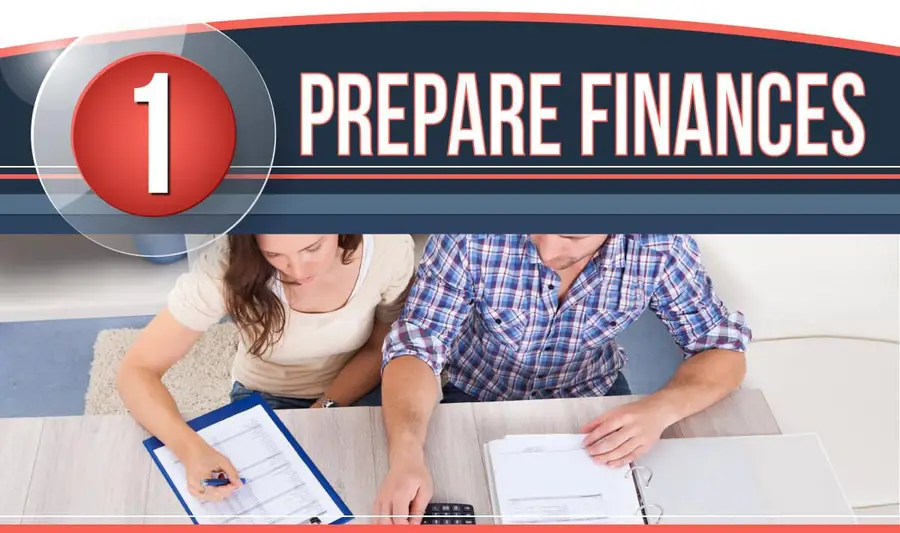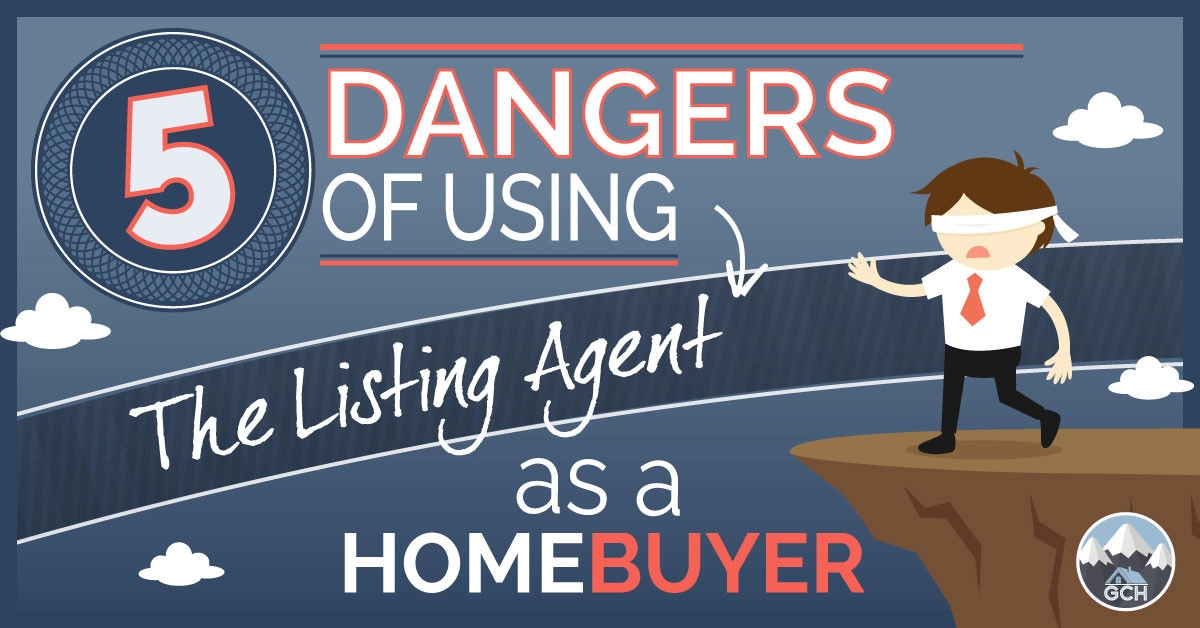Ready to buy a house? This simple guide will help you understand the home-buying process. Once you sign a contract, buying a home usually takes between 30 and 45 days.
As an experienced Realtor, I've helped many buyers find the right home. This guide will show you how to get your finances set, manage your credit, and handle offers, so you can own a home without stress.
Save this post for quick answers as you go. If you need help or want more details, reach out to your Realtor or check out these common home buyer questions. Your Realtor is there to guide you every step of the way.
Here's a quick reference guide to all the details we will cover in this article.
Table of Contents
(click any section)

How to Prepare Your Finances Before Buying a House
Getting your finances in order is the first step to buying a home. When you know your budget, you can look at houses you can truly afford and skip those that are not a good fit. Most buyers need to have about two percent to ten percent of the home's price saved up for costs and down payment.
If you look at homes that cost more than your approved amount, you might end up disappointed. The houses above your price range will look nicer and have better features. Starting too high means you might have to go lower and settle for less, which can be tough.
Start preparing your finances as soon as you can. Here are five simple tips to help with your home buying budget:
1. Get Started By Knowing Your Credit History
![]() The first step to buying a home is to check your credit history. Do not guess your credit score or hope for the best. Even people who pay bills on time can have surprises on their credit report.
The first step to buying a home is to check your credit history. Do not guess your credit score or hope for the best. Even people who pay bills on time can have surprises on their credit report.
Your lender will look closely at your credit, so it is important to know what is there. If you find mistakes, work to fix them before you start home shopping. Waiting until the last minute can delay your home purchase by several months.
Check your credit as soon as you start thinking about buying a house. It will save you time and help you avoid problems later in the process.
2. Calculate Your Debt-to-Income To Determine Price Range
 Lenders use your debt-to-income ratio to see how much house you can afford. This ratio is your total monthly debt divided by your total monthly income. That includes your payments for loans, credit cards, and other bills compared to what you earn each month.
Lenders use your debt-to-income ratio to see how much house you can afford. This ratio is your total monthly debt divided by your total monthly income. That includes your payments for loans, credit cards, and other bills compared to what you earn each month.
Most lenders want this number at forty-three percent or less. For example, if you make eight thousand dollars per month and your monthly debts add up to four thousand, your ratio is fifty percent. That is too high for most mortgage approvals. Use an online Debt-to-Income Calculator to check your number.
Aim for a ratio at or below forty-three percent. This makes you more likely to get a mortgage and keeps your home budget comfortable.
3. Gather Your Tax, Financial, & Employment Documents
 When you apply for a mortgage, the loan officer will ask you for the previous year's tax returns, employment verification forms, and the last month's bank statements. It's good to have this information accessible before looking at homes.
When you apply for a mortgage, the loan officer will ask you for the previous year's tax returns, employment verification forms, and the last month's bank statements. It's good to have this information accessible before looking at homes.
Some lenders may not ask for these documents until you are under contract. If you are asked for these documents later and cannot promptly provide them, it could affect your ability to purchase the home. This could cause you to lose earnest money and crush your hopes of buying a home.
Make sure you have all of your key documents ready, and preferably get them to your loan officer before you put a contract on a home. Realtors have some of the best references for good mortgage lenders because they promote the ones who don't kill deals. Experienced Realtors have all had a deal or two fall apart because of an inexperienced lender's incompetence.
4. Choose A Savvy Mortgage Lender
 Now that you have checked your credit history, calculated your debt-to-income, and gathered all your financial docs, you should talk to a mortgage loan officer. This is an important step that will shape the way your transaction plays out.
Now that you have checked your credit history, calculated your debt-to-income, and gathered all your financial docs, you should talk to a mortgage loan officer. This is an important step that will shape the way your transaction plays out.
There are many loan officers to choose from, just as there are multiple loan types. Be sure to take your time and find the one that works best for you. You'll be communicating with them often.
Closing costs, interest rates, and closing timeline are good things to ask your loan officer about. Most Realtors will have lenders who they can recommend if you need one. Contact a few different mortgage brokers to compare rates and personality types. Choose one who is experienced and whom you feel comfortable hiring.
5. Complete Your Loan Pre-Approval
 To be treated as a legitimate home buyer when shopping for homes, you must have a mortgage pre-approval letter ready from your lender. Once you have completed the steps above and found a suitable mortgage lender, it's time to finalize your pre-approval to buy a home. Make sure that your lender has thoroughly investigated your finances.
To be treated as a legitimate home buyer when shopping for homes, you must have a mortgage pre-approval letter ready from your lender. Once you have completed the steps above and found a suitable mortgage lender, it's time to finalize your pre-approval to buy a home. Make sure that your lender has thoroughly investigated your finances.
Some lenders will do a basic mortgage pre-qualification based on minimal questioning. This can mean problems later when you are actually under contract to purchase. A full mortgage pre-approval will help guarantee that your financing doesn't fall apart later while you are halfway into the home-buying process.
When you submit your offer to the seller's agent, they will likely talk to your loan officer to verify the pre-approval letter is correct. If the seller's real estate agent senses incompetence in your mortgage lender, they may convey that to the sellers. This may make them nervous to accept your offer with that lender. This is why having a good mortgage broker is important.

How To Find The Right Home
Once you have prepared your finances to buy a house, the next step is to find one. This is the fun part of the home-buying process, but it can also be exhausting. The steps below will help you determine a clear path to finding the best house that fits your needs.
Depending on the state of your local real estate market, this process could take weeks to many months. Get ready for some emotional roller coasters as you venture through this part of the home-buying process.
6. Find A Good Real Estate Agent
 A good Realtor is your most vital asset when buying a house. They will provide online tools to update you when new homes come on the market. They will also help educate you on the process and advise you on how to respond to certain situations that may arise.
A good Realtor is your most vital asset when buying a house. They will provide online tools to update you when new homes come on the market. They will also help educate you on the process and advise you on how to respond to certain situations that may arise.
Don't just hire the first Realtor that you know. Be sure to take your time and shop for a Realtor with solid credentials and a proven track record of helping people. They will be your primary advocate through the entire transaction process.
When interviewing real estate agents, be sure to ask about their experience level, production level, and history with the areas you are considering. Most cities have more Realtors than closings, so you have plenty to choose from. Take your time and choose wisely. This will heavily affect the outcome of your home purchase.
7. Research Local Areas Where You Want to Live
 Before finding a home, you need to know which part of town you want to live in. Be sure to research local crime stats, school ratings, and area amenities to help determine the areas you would enjoy living in. These things also affect future resale, so consider that when researching.
Before finding a home, you need to know which part of town you want to live in. Be sure to research local crime stats, school ratings, and area amenities to help determine the areas you would enjoy living in. These things also affect future resale, so consider that when researching.
Within certain areas, there will also be specific neighborhoods that you may like or dislike. Gathering all of this information takes time, so be patient and do your due diligence.
Choosing the wrong neighborhood can be exhausting and expensive to fix later on. It would be better to live in a smaller home in a good neighborhood than in a big home in a rough neighborhood. Consider this truth while remaining open to all of your options.
8. Search For Housing Online and Make a List
 When you know the areas you like best, you can go online and look at all the homes available in those neighborhoods. You can also set yourself up to be notified anytime a new home within your search criteria comes on the market.
When you know the areas you like best, you can go online and look at all the homes available in those neighborhoods. You can also set yourself up to be notified anytime a new home within your search criteria comes on the market.
On our website, click "Save Search" on any search results page, and you will be set up. This is one of the best ways to keep up with the housing market. Remember that homes usually look different in person than they do online.
Some homes look lovely online but not so good in person. Be ready to have an open mind and expect anything. You'll surprised how different properties are when you're actually inside of them.
9. Visit Homes In Person With Your Realtor
 Once you have gathered some houses you would like to see, contact your Realtor and schedule a viewing time. Your agent will handle all of the showing coordination and details. As you visit the homes, take notes, photos, or videos to help remind you of the details. When looking at multiple properties within the same day, it's easy to forget a home's unique aspects.
Once you have gathered some houses you would like to see, contact your Realtor and schedule a viewing time. Your agent will handle all of the showing coordination and details. As you visit the homes, take notes, photos, or videos to help remind you of the details. When looking at multiple properties within the same day, it's easy to forget a home's unique aspects.
As you look at houses with your Realtor, verbalize what you do and don't like so your agent can learn your styles and preferences. Looking at homes in person is much different than looking online. If you look at too many in a day, they will all start to blend together.
Try to keep a list of your top three favorite homes until you have worked through your entire list. This will help you stay focused on the properties that are best for you.
10. Make An Offer on a Home
 Once you have found the perfect home, it's time to make an offer! Your Realtor will be able to help you determine a reasonable offer price by providing you with recent past sales data and current market data.
Once you have found the perfect home, it's time to make an offer! Your Realtor will be able to help you determine a reasonable offer price by providing you with recent past sales data and current market data.
Every area, price range, and home style has different aspects that determine value. Considering all of these will help you present a fair but strong offer. Some properties may be in multiple offer situations, which requires even more thought when structuring the offer details.
Try to keep your emotions in check during this time. Be okay with losing the house if the seller is not willing to negotiate or is being unfair. Sellers will try to push on your emotions to wear you down. It would help if you had clear boundaries to your offer. This will protect you from agreeing to terms that you may regret later.

How To Get The Keys And Close The Transaction
Now that you have prepared your finances and found a home, it's time to close the transaction and get the keys. These items need to be handled promptly. Your Realtor will help guide you through each step. You can use this section as a reference as you are moving through the final steps of buying your new home.
Pay attention to everything that is happening during this time. Have clear conversations with your real estate agent and mortgage lender to ensure all the terms are clear and agreeable.
11. Negotiate The Real Estate Transaction Terms
 Once you have submitted an offer on a home, you may receive a counteroffer from the seller. You can negotiate the contract terms, such as the closing date, seller concessions, appraisal deadlines, inspection deadlines, repairs, etc.
Once you have submitted an offer on a home, you may receive a counteroffer from the seller. You can negotiate the contract terms, such as the closing date, seller concessions, appraisal deadlines, inspection deadlines, repairs, etc.
Your Realtor will guide you through your options and clarify everything. There are many different variables to negotiate on a sales contract, so take your time and think through every option. Once you're under contract, it's tough, if not impossible, to change things later.
Buyers have multiple contingencies that they can use to get out of a sales contract, but sellers have very few, if any. As a seller, you must verify that you are clear on all the contract terms before signing it. Your understanding of these terms will be the framework for the transaction moving forward.
12. How Does Earnest Money Work?
 Once you have an executed sales contract signed by both parties, you will need to submit your earnest money. Earnest money is kind of like a down payment for the transaction. Sellers want more than just a signed contract before they take their house off the market.
Once you have an executed sales contract signed by both parties, you will need to submit your earnest money. Earnest money is kind of like a down payment for the transaction. Sellers want more than just a signed contract before they take their house off the market.
Earnest money proves to the sellers that you are a serious home buyer ready to purchase a home. The earnest money is credited back to you at closing or will default to the seller if you cannot perform the details of the sales contract.
It's crucial to have your financial documents delivered and verified to your mortgage lender before submitting earnest money. If your lender missed some documents, they may be unable to underwrite your mortgage, and you could lose your earnest money. Make sure your loan is completely underwritten before you move forward with this step.
13. Perform Important Home Inspections
 Most contracts are written with an inspection period to allow the buyer time to hire a home inspector and thoroughly inspect the property. There are many types of inspections, such as radon, mold, pest, structural, and full home inspections.
Most contracts are written with an inspection period to allow the buyer time to hire a home inspector and thoroughly inspect the property. There are many types of inspections, such as radon, mold, pest, structural, and full home inspections.
Having an inspection is one of the most essential parts of home-buying. The cost of an inspection is much cheaper than fixing issues later. Ensure you allow plenty of time to complete your inspections within the days allotted in your sales contract. Once you are past inspections, you're almost done!
When you receive your inspection report, discuss any issues you are nervous about with your real estate agent. You can ask the seller to fix issues if the real estate market is not too competitive.
14. Order the Property Appraisal and Property Insurance
 The appraisal is one of the last steps in the home-buying process. Mortgage companies require appraisals to verify that their loan amount is equal to, or better than, the home's appraised value. It's protection for the lender.
The appraisal is one of the last steps in the home-buying process. Mortgage companies require appraisals to verify that their loan amount is equal to, or better than, the home's appraised value. It's protection for the lender.
If the house does not appraise at value, the contract will either be terminated or renegotiated. Ensure the appraisal is ordered as soon as your inspections are done. Delayed appraisals are one of the main causes of late closings.
You will also need to contact an insurance agent and get your homeowners insurance policy completed before closing. Your mortgage company will require this to be done before they can complete your loan.
Homeowner's insurance fees will vary dramatically. Some insurance carriers may not ever provide coverage in your area. Consult with your Realtor to determine which major insurance companies are in your area.
15. Close The Transaction And Get the Keys
 Once you are past the inspections and appraisal process, you can set up a closing time with your title company and the other party. Be sure to bring your driver's license (or passport) to closing and any monetary items required by the sales contract or mortgage lender.
Once you are past the inspections and appraisal process, you can set up a closing time with your title company and the other party. Be sure to bring your driver's license (or passport) to closing and any monetary items required by the sales contract or mortgage lender.
Once both parties have signed all the documents and the mortgage company has funded the loan, you will get the keys. Closing usually takes 30 minutes to an hour, but complicated deals can take much longer.
Make sure to be on time for your closing and ready to sign many documents. Most of the docs will be from your mortgage company. Cash transactions are much faster and have less paperwork than mortgaged deals.
Home-buying can seem complicated, but working with a good Realtor makes the process easy. Here is a helpful infographic to help you remember each step of the home-buying process. Happy house hunting!

Use this guide at every step of your home-buying journey. Start by making sure your finances are ready before you look at any homes with your Realtor. When you follow the right order, the process is much easier and you avoid surprises.
After you set your budget, the real excitement begins. Home shopping is fun, but stay calm and stick to your plan. Trust your Realtor to help you make smart choices until your purchase is complete.
Getting the keys to your new home is a big moment. Be sure to take pictures on closing day to remember this special achievement.
Thank you for reading our step-by-step home buying guide. If you want expert help with homes in the Colorado Springs area, reach out to us. We always enjoy helping buyers find the best home for their needs and budget.

.png)












